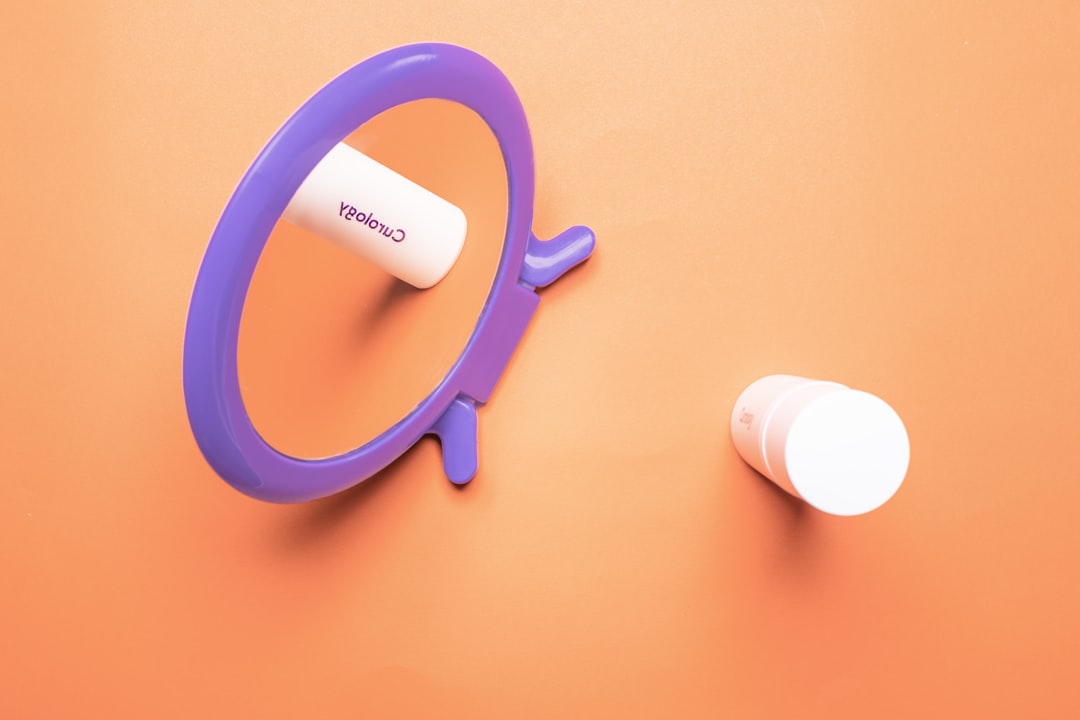
Essential Daily Supplements for Women’s Health
Daily supplements play a crucial role in maintaining optimal health for women. While a balanced diet is essential, it may not always provide all the necessary nutrients that women need. Factors such as busy lifestyles, dietary restrictions, and hormonal changes can affect nutrient absorption and increase the need for supplements. In this article, we will explore the importance of daily supplements for women’s health and discuss the top supplements that women should consider incorporating into their routine.
Key Takeaways
- Women need daily supplements to ensure they are getting all the necessary nutrients for optimal health.
- Vitamins and minerals are essential for women’s health, including bone health, reproductive health, and digestive health.
- Top supplements for women’s health include omega-3 fatty acids, probiotics, vitamin D, iron, folate, and antioxidants.
- Omega-3 fatty acids provide numerous benefits, including reducing inflammation and improving heart health.
- Probiotics help improve women’s digestive health by promoting healthy gut bacteria.
- Vitamin D is essential for women’s bone health and can also improve immune function.
- Iron is a vital nutrient for women, as it helps transport oxygen throughout the body and prevents anemia.
- Folate is important for women’s reproductive health, as it can prevent birth defects and support healthy fetal development.
- Antioxidants play a crucial role in women’s health by protecting against oxidative stress and reducing the risk of chronic diseases.
- When choosing supplements, it’s important to consider your individual needs and consult with a healthcare professional.
Why Women Need Daily Supplements
While a healthy diet is the foundation of good health, it may not always provide all the necessary nutrients that women need. Women have unique nutritional needs due to factors such as menstruation, pregnancy, breastfeeding, and menopause. These life stages can increase the demand for certain nutrients, making it challenging to meet these needs through diet alone.
Additionally, busy lifestyles and dietary restrictions can further limit nutrient intake. Many women juggle multiple responsibilities and may not have the time to prepare nutritious meals every day. Moreover, dietary restrictions such as vegetarian or vegan diets can make it difficult to obtain certain nutrients that are primarily found in animal products.
The Importance of Vitamins and Minerals for Women
Vitamins and minerals are essential for women’s health as they play various roles in the body. Here are some key nutrients that women should prioritize:
1. Calcium: Calcium is crucial for maintaining strong bones and teeth. It also plays a role in muscle function and nerve transmission.
2. Vitamin D: Vitamin D is essential for calcium absorption and bone health. It also supports immune function and may have a protective effect against certain diseases.
3. Iron: Iron is vital for transporting oxygen throughout the body and preventing anemia. Women of childbearing age are particularly at risk of iron deficiency due to menstruation.
4. Folate: Folate is important for reproductive health, as it helps prevent neural tube defects during pregnancy. It also supports red blood cell production and DNA synthesis.
5. Omega-3 Fatty Acids: Omega-3 fatty acids have numerous benefits for women’s health, including reducing inflammation, supporting brain health, and promoting heart health.
6. Antioxidants: Antioxidants such as vitamins A, C, and E help protect the body against oxidative stress and may reduce the risk of chronic diseases.
Top Supplements for Women’s Health
| Supplement | Benefits | Dosage | Side Effects |
|---|---|---|---|
| Iron | Prevents anemia, improves energy levels, supports immune system | 18 mg/day | Constipation, nausea, stomach pain |
| Calcium | Strengthens bones, supports muscle function, regulates blood pressure | 1000-1200 mg/day | Constipation, bloating, kidney stones |
| Vitamin D | Improves bone health, supports immune system, regulates mood | 600-800 IU/day | Nausea, vomiting, constipation |
| Magnesium | Relieves PMS symptoms, supports bone health, regulates blood sugar | 310-320 mg/day | Diarrhea, nausea, stomach cramps |
| Omega-3 Fatty Acids | Reduces inflammation, supports heart health, improves brain function | 250-500 mg/day | Burping, bad breath, nausea |
1. Multivitamin: A high-quality multivitamin can help fill in nutrient gaps and provide a broad spectrum of vitamins and minerals that women need.
2. Calcium and Vitamin D: Many women do not get enough calcium and vitamin D from their diet alone. Supplementing with these nutrients can support bone health and reduce the risk of osteoporosis.
3. Iron: Women who experience heavy menstrual bleeding or are at risk of iron deficiency should consider an iron supplement to prevent anemia.
4. Omega-3 Fatty Acids: Omega-3 supplements, such as fish oil or algae oil, can provide the necessary EPA and DHA that may be lacking in the diet.
5. Probiotics: Probiotics promote a healthy gut microbiome, which is essential for digestive health and immune function. They can be found in supplement form or in fermented foods like yogurt and sauerkraut.
Benefits of Taking Omega-3 Fatty Acids
Omega-3 fatty acids are essential fats that have numerous benefits for women’s health. They are known for their anti-inflammatory properties, which can help reduce symptoms of conditions such as arthritis and menstrual pain. Omega-3s also support brain health, improve mood, and may reduce the risk of depression.
The best sources of omega-3 fatty acids are fatty fish like salmon, mackerel, and sardines. However, many women do not consume enough of these foods regularly. In such cases, omega-3 supplements can be a convenient and effective way to ensure an adequate intake of these essential fats. Look for supplements that contain both EPA and DHA, as these are the active forms of omega-3s that provide the most benefits.
How Probiotics Help Women’s Digestive Health
Probiotics are beneficial bacteria that support a healthy gut microbiome. They help maintain the balance of good and bad bacteria in the digestive system, which is essential for optimal digestion and nutrient absorption. Probiotics can also support immune function, as a significant portion of the immune system is located in the gut.
The best sources of probiotics are fermented foods like yogurt, kefir, sauerkraut, and kimchi. However, if you don’t consume these foods regularly, a probiotic supplement can be a convenient way to ensure a sufficient intake of beneficial bacteria. Look for a high-quality probiotic supplement that contains a variety of strains and has a high colony-forming unit (CFU) count.
Vitamin D: Essential for Women’s Bone Health
Vitamin D is crucial for women’s bone health as it helps with calcium absorption and utilization. It plays a vital role in maintaining strong bones and preventing conditions such as osteoporosis. Vitamin D also supports immune function and may have protective effects against certain diseases such as cancer and autoimmune disorders.
The best source of vitamin D is sunlight. When exposed to sunlight, the body can produce vitamin D naturally. However, many women may not get enough sun exposure due to factors such as climate, lifestyle, or concerns about skin cancer. In such cases, a vitamin D supplement can help ensure an adequate intake. It is important to consult with a healthcare provider to determine the appropriate dosage based on individual needs.
Iron: A Vital Nutrient for Women
Iron is an essential mineral that plays a crucial role in transporting oxygen throughout the body. It is particularly important for women, as they have higher iron requirements due to menstruation. Iron deficiency can lead to anemia, which can cause fatigue, weakness, and impaired cognitive function.
The best sources of iron are animal products such as red meat, poultry, and seafood. However, vegetarian and vegan women may struggle to meet their iron needs through diet alone. In such cases, an iron supplement can help prevent deficiency. It is important to choose a supplement that is easily absorbed and does not cause digestive discomfort. Iron supplements are best taken with vitamin C-rich foods to enhance absorption.
Folate and Women’s Reproductive Health
Folate, also known as vitamin B9, is essential for women’s reproductive health. It plays a crucial role in DNA synthesis and cell division, making it particularly important during periods of rapid growth and development, such as pregnancy. Folate helps prevent neural tube defects in the developing fetus and supports red blood cell production.
The best sources of folate are leafy green vegetables, legumes, citrus fruits, and fortified grains. However, some women may have difficulty meeting their folate needs through diet alone. In such cases, a folate supplement can be beneficial, especially for women who are planning to conceive or are in the early stages of pregnancy. It is important to consult with a healthcare provider to determine the appropriate dosage.
Antioxidants and Their Role in Women’s Health
Antioxidants are compounds that help protect the body against oxidative stress caused by free radicals. They play a crucial role in reducing inflammation and preventing cellular damage. Antioxidants have numerous benefits for women’s health, including reducing the risk of chronic diseases such as heart disease, cancer, and age-related macular degeneration.
The best sources of antioxidants are fruits and vegetables, particularly those that are brightly colored. Berries, leafy greens, tomatoes, and bell peppers are excellent sources of antioxidants. It is important to consume a variety of these foods to ensure a broad spectrum of antioxidants. If it is challenging to obtain enough antioxidants through diet alone, a supplement can be considered. Look for a supplement that contains a mix of antioxidants such as vitamins A, C, and E, as well as other beneficial compounds like resveratrol and lycopene.
Choosing the Right Supplements for Your Needs
When choosing supplements, it is important to consider your individual needs and consult with a healthcare provider. Here are some tips to help you choose the right supplements:
1. Assess your diet: Take a close look at your diet and identify any nutrient gaps. This will help you determine which supplements you may need.
2. Consider your life stage: Women have unique nutritional needs at different stages of life. Consider factors such as menstruation, pregnancy, breastfeeding, and menopause when choosing supplements.
3. Quality matters: Choose high-quality supplements from reputable brands. Look for third-party testing and certifications to ensure safety and efficacy.
4. Read labels carefully: Pay attention to the dosage, form, and other ingredients in the supplement. Some nutrients are better absorbed in certain forms or when taken with specific co-factors.
5. Consult with a healthcare provider: It is important to consult with a healthcare provider before starting any new supplements, especially if you have underlying health conditions or are taking medications.
Daily supplements are essential for women’s health as they help fill in nutrient gaps and support optimal functioning of the body. While a balanced diet is important, it may not always provide all the necessary nutrients that women need. Factors such as busy lifestyles, dietary restrictions, and hormonal changes can affect nutrient absorption and increase the need for supplements.
By prioritizing nutrient intake through daily supplements, women can support their overall health and well-being. It is important to choose high-quality supplements that are tailored to individual needs and to consult with a healthcare provider for personalized recommendations. With the right supplements and a balanced lifestyle, women can thrive and achieve optimal health.
FAQs
What are daily supplements for women’s health?
Daily supplements for women’s health are dietary supplements that are specifically formulated to meet the nutritional needs of women. These supplements contain vitamins, minerals, and other nutrients that are essential for maintaining good health.
What are the benefits of taking daily supplements for women’s health?
Taking daily supplements for women’s health can help to improve overall health and well-being. These supplements can help to support immune function, improve energy levels, promote healthy skin and hair, and support bone health.
What are some common ingredients found in daily supplements for women’s health?
Common ingredients found in daily supplements for women’s health include vitamins A, C, D, E, and K, as well as B vitamins, calcium, iron, magnesium, and zinc. Some supplements may also contain herbal extracts such as ginseng, echinacea, and St. John’s wort.
Are there any risks associated with taking daily supplements for women’s health?
While daily supplements for women’s health are generally safe, there are some risks associated with taking these supplements. Taking too much of certain vitamins and minerals can be harmful, and some supplements may interact with prescription medications. It is important to talk to a healthcare provider before starting any new supplement regimen.
How do I choose the right daily supplement for women’s health?
Choosing the right daily supplement for women’s health depends on individual needs and health goals. It is important to look for supplements that are specifically formulated for women and that contain the nutrients that are most important for your health. It is also important to choose supplements from reputable brands and to talk to a healthcare provider before starting any new supplement regimen.


















